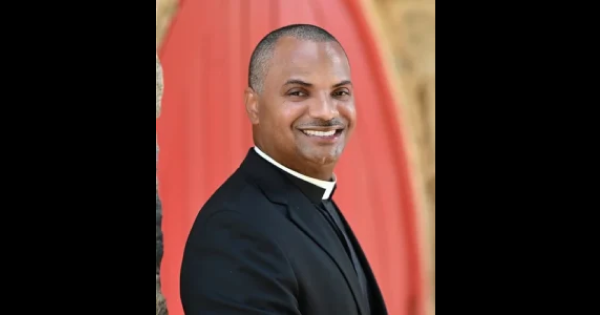Care of Creation

At St. Michael's, we are entering a time of reflection on environmental theology and care of God's creation. In September 2011, the Episcopal Church House of Bishops issued a pastoral teaching to the church regarding environmental justice. In it they wrote:
"The mounting urgency of our environmental crisis challenges us at this time to confess "our self-indulgent appetites and ways," "our waste and pollution of God's creation," and "our lack of concern for those who come after us" (Ash Wednesday Liturgy, Book of Common Prayer, p. 268). It also challenges us to amend our lives and to work for environmental justice and for more environmentally sustainable practices.
"Christians cannot be indifferent to global warming, pollution, natural resource depletion, species extinctions, and habitat destruction, all of which threaten life on our planet. Because so many of these threats are driven by greed, we must also actively seek to create more compassionate and sustainable economies that support the well-being of all God's creation."
The care of creation is a long-standing element of Episcopal Church teaching. Rather than being new or trendy, it has in fact been a prominent feature of the approach to mission that the Anglican Communion articulated during the 1980s. The so-called Five Marks of Mission that summarize the Anglican and Episcopal mission agenda are:
- To proclaim the Good News of the Kingdom;
- To teach, baptize and nurture new believers;
- To respond to human need by loving service;
- To seek to transform unjust structures of society, to challenge violence of every kind and to pursue peace and reconciliation;
- To strive to safeguard the integrity of creation and sustain and renew the life of the earth.
From a practical standpoint, the Five Marks offer a framework to help faith communities decide how best to direct their mission activities. As attention is typically showered on the first four marks, care of creation can be overlooked. Former Presiding Bishop Katharine Jefferts Schori observed as much, commenting in 2008 that The Episcopal Church lacked an organized effort to safeguarding the integrity of creation comparable to its efforts in the other areas.
Here at St. Michael's, we are pursuing the "Life of Grace" program to shine new light on this often overlooked mark. For sure, we will continue our long-standing work to proclaim the Gospel, nurture new believers, serve our neighbors, and pursue social justice -- the other marks. But there is more to do. We pray that as we "hear, read, mark, learn, and inwardly digest" our bishops' teaching on creation, God will help us discern new paths of mission and strengthen us to walk them.
Almighty and everlasting God, you made the universe with all its marvelous order, its atoms, worlds, and galaxies, and the infinite complexity of living creatures: Grant that, as we probe the mysteries of your creation, we may come to know you more truly, and more surely fulfill our role in your eternal purpose; in the name of Jesus Christ our Lord. Amen. (BCP, p. 827)
Garden Work Day
Environmental Ministry Conference at VTS
Composting at St. Michael's
Care of Creation Green Living Bingo
St. Michael’s Holy Hike This Sunday
Become an Energy Master

Now in its sixth year, the highly successful and award-winning Energy Masters program promotes a more energy efficient and sustainable community by engaging professionally trained volunteers in energy efficiency and water conservation techniques, and in community outreach and education. The program serves low-income families in Arlington County and the City of Alexandria.
You, too…
Care of Creation Online Resources

There are many online resources. These websites provide a good starting point for further exploration.
In Virginia:
Arlingtonians for a Clean Environment
Center for Spirituality in Nature
Interfaith Power and Light (DC.MD.NoVA)
Anglican Community & the Episcopal Church USA:
Anglican Communion Environmental Network
Episcopal Church Eco-Justice Resources
Episcopal Church Foundation's E…





